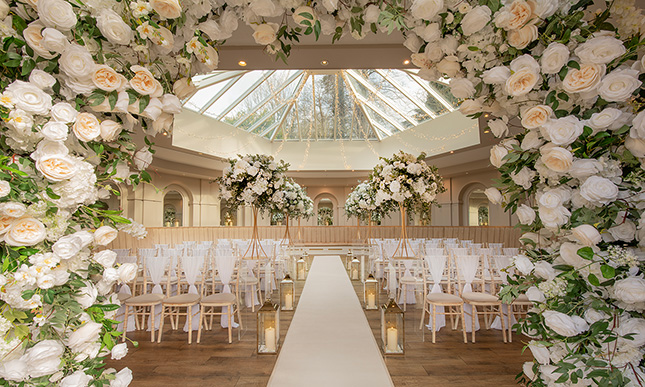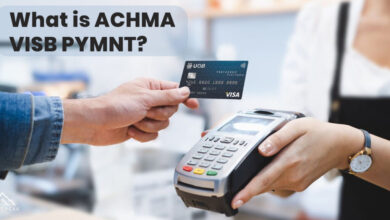Wedding Venues: The Ultimate Guide to Choosing the Perfect Spot for Your Big Day

Introduction
Choosing the right wedding venue is one of the most crucial decisions you’ll make in your wedding planning journey. The venue sets the stage for your special day, impacting everything from the overall ambiance to the comfort of your guests. With countless options available, it can be overwhelming to find the perfect spot that aligns with your vision and needs. This guide will help you navigate through various types of wedding venues, consider key factors when making your choice, and provide tips on booking and finalizing your venue.
Types of Wedding Venues
Traditional Venues
When it comes to traditional wedding venues, churches and temples remain timeless choices. These locations offer a formal and reverent atmosphere that many couples find appealing for their ceremonies. Churches, with their ornate interiors and historical significance, provide a classic backdrop that enhances the sacredness of the occasion. Temples, often known for their serene and spiritual environments, offer a unique setting that aligns with various cultural traditions.
Banquet halls are another popular traditional venue option. These spaces are highly versatile and can accommodate a wide range of guest lists and wedding styles. With their spacious layouts, banquet halls can be decorated to fit any theme, from opulent to minimalist. Additionally, many banquet halls offer on-site catering services, which can simplify your planning process. The convenience of having everything in one location is a significant advantage for many couples, as it streamlines both the ceremony and reception arrangements.
Outdoor Venues
Outdoor wedding venues provide a refreshing alternative to traditional indoor settings, offering a natural and scenic backdrop for your special day. Garden and park weddings are particularly popular for couples who appreciate the beauty of nature. These venues often feature lush greenery, blooming flowers, and tranquil settings that create a romantic atmosphere. Hosting your wedding in a garden or park allows you to embrace the outdoors and enjoy the beauty of the changing seasons, making it an ideal choice for couples seeking a picturesque and intimate ceremony.
Beach weddings are another stunning outdoor option, perfect for those who dream of exchanging vows with the sound of waves in the background. The natural beauty of the coastline, combined with the breathtaking sunsets, creates an unforgettable setting for a wedding. However, beach weddings require careful planning to address logistical challenges such as tides, weather conditions, and accessibility. Despite these considerations, a beach wedding offers a unique and memorable experience that many couples find irresistible.
Unique and Non-Traditional Venues
For couples looking for something truly distinctive, unique and non-traditional venues offer a creative twist on the classic wedding setting. Historic sites and museums provide a rich and elegant backdrop, often featuring impressive architecture and timeless charm. These venues add a touch of sophistication and history to your wedding, making it a memorable event for both you and your guests.
Vineyards and wineries are another exceptional choice, especially for couples who appreciate fine wine and a romantic ambiance. The rolling hills, lush grapevines, and rustic charm of these locations create an enchanting atmosphere that is perfect for a romantic celebration. Many vineyards offer comprehensive wedding packages, including on-site catering and wine tasting options, which can enhance your wedding experience and create lasting memories.
Factors to Consider When Choosing a Wedding Venue
Location and Accessibility
When selecting a wedding venue, location and accessibility are crucial factors to consider. Choosing a venue that is convenient for your guests ensures that everyone can attend without undue stress or inconvenience. A centrally located venue with easy access to transportation and parking can significantly enhance the overall experience for your guests.
Proximity to accommodations is another important consideration, especially if you have out-of-town guests. Ensuring that there are nearby hotels or rental options can make travel arrangements more manageable for your attendees. Additionally, consider the accessibility of the venue for guests with mobility challenges. An inclusive venue with adequate facilities ensures that all your guests can comfortably enjoy your special day.
Size and Capacity
The size and capacity of the venue are fundamental aspects to address when making your choice. It’s essential to select a venue that can comfortably accommodate your guest list without feeling overcrowded or sparse. An overly cramped space can detract from the enjoyment of the event, while a venue that is too large may create a sense of disconnect.
Balancing the space for both the ceremony and reception is also important. Some venues may offer separate areas for each part of the celebration, while others may require you to transform the space between events. Understanding the layout and how it aligns with your wedding plans can help you make an informed decision and ensure a smooth flow of activities throughout the day.
Budget and Costs
Understanding the budget implications of different wedding venues is crucial for effective planning. Venue costs can vary widely depending on factors such as location, size, and amenities. It’s important to set a budget early on and explore venues that align with your financial constraints. Many venues offer packages that include additional services, which can help streamline your planning and potentially save on costs.
Hidden fees and additional charges can also impact your budget. Be sure to inquire about any extra costs associated with the venue, such as setup fees, overtime charges, or additional services. Carefully reviewing the contract and discussing potential expenses with the venue coordinator can help you avoid unexpected surprises and stay within your budget.
Amenities and Services
When choosing a wedding venue, consider the amenities and services that are included or available. On-site catering can be a significant advantage, as it simplifies meal planning and reduces the need to coordinate with external vendors. Additionally, some venues offer in-house décor and setup services, which can streamline the planning process and ensure a cohesive design.
Audio/visual equipment is another important consideration, especially if you plan to incorporate music, speeches, or multimedia presentations into your wedding. Ensuring that the venue has the necessary equipment or allows you to bring in your own can help you avoid technical issues and ensure a seamless experience.
How to Book Your Wedding Venue
Research and Shortlisting
The process of booking your wedding venue begins with thorough research and shortlisting potential options. Start by compiling a list of venues that align with your vision, budget, and logistical needs. Utilize online resources, visit venue websites, and read reviews to gather information and compare options.
Touring potential venues is a critical step in the decision-making process. Visiting the locations in person allows you to assess the space, meet with venue staff, and envision how your wedding will come to life in the setting. Pay attention to details such as layout, cleanliness, and overall ambiance during your visits.
Negotiating Contracts
Once you’ve identified your preferred venue, negotiating the contract is an essential step. Review the contract carefully to ensure that all aspects of the agreement align with your expectations and requirements. Key elements to consider include the rental fee, deposit requirements, cancellation policies, and any additional costs.
Negotiating favorable terms and conditions can help you secure the best deal and protect your interests. Don’t hesitate to discuss your needs and preferences with the venue coordinator, and be prepared to ask questions or request modifications to the contract if necessary.
Finalizing Details
After securing your venue, finalizing the details is the next step in the planning process. Establish a timeline for completing necessary arrangements, including vendor bookings, décor setup, and any other logistical considerations. Coordinating with the venue staff and ensuring clear communication can help ensure that all aspects of your wedding are seamlessly executed.
Regular follow-up with the venue coordinator can help address any last-minute changes or concerns and ensure that everything is in place for your special day. By staying organized and proactive, you can create a memorable and stress-free wedding experience.
Conclusion
Choosing the perfect wedding venue is a pivotal aspect of your wedding planning journey. By understanding the different types of venues, considering key factors such as location, size, and budget, and following effective booking strategies, you can find a venue that aligns with your vision and enhances your special day. Remember to start early, stay organized, and communicate clearly with your venue staff to ensure a smooth and enjoyable wedding experience.





